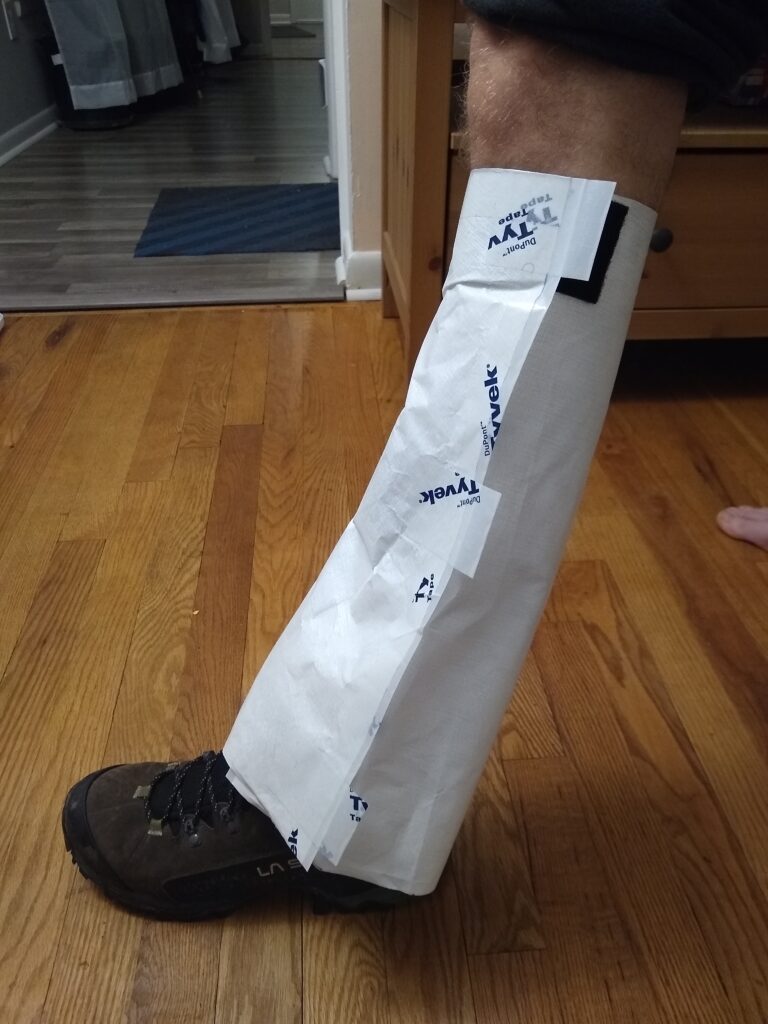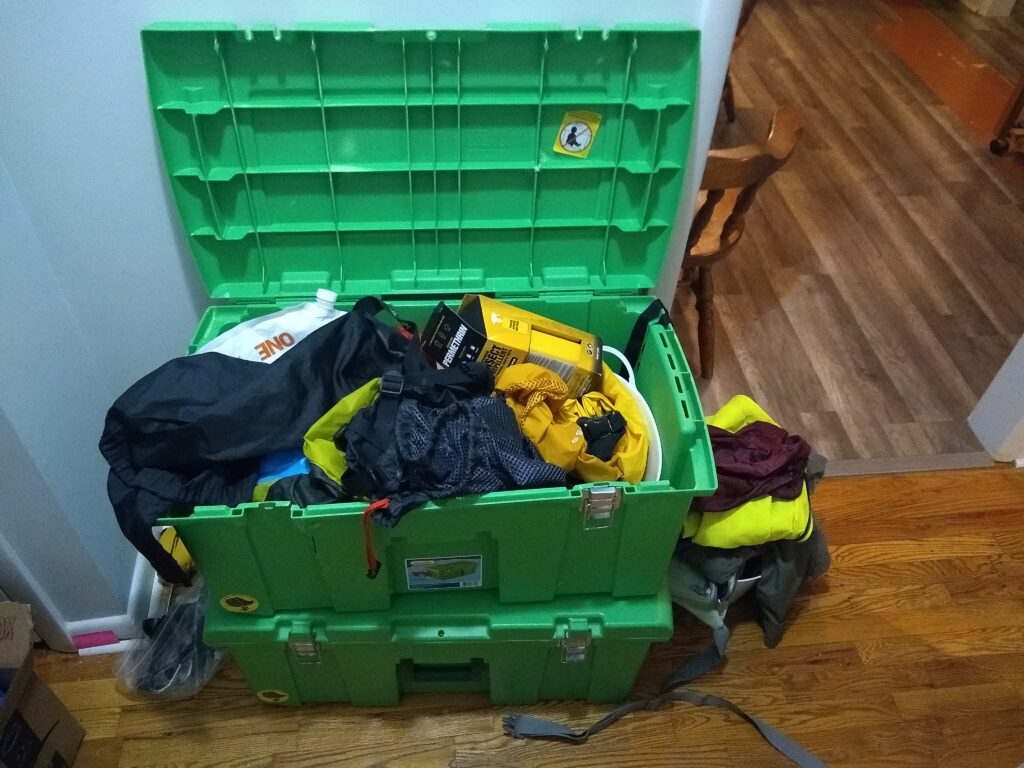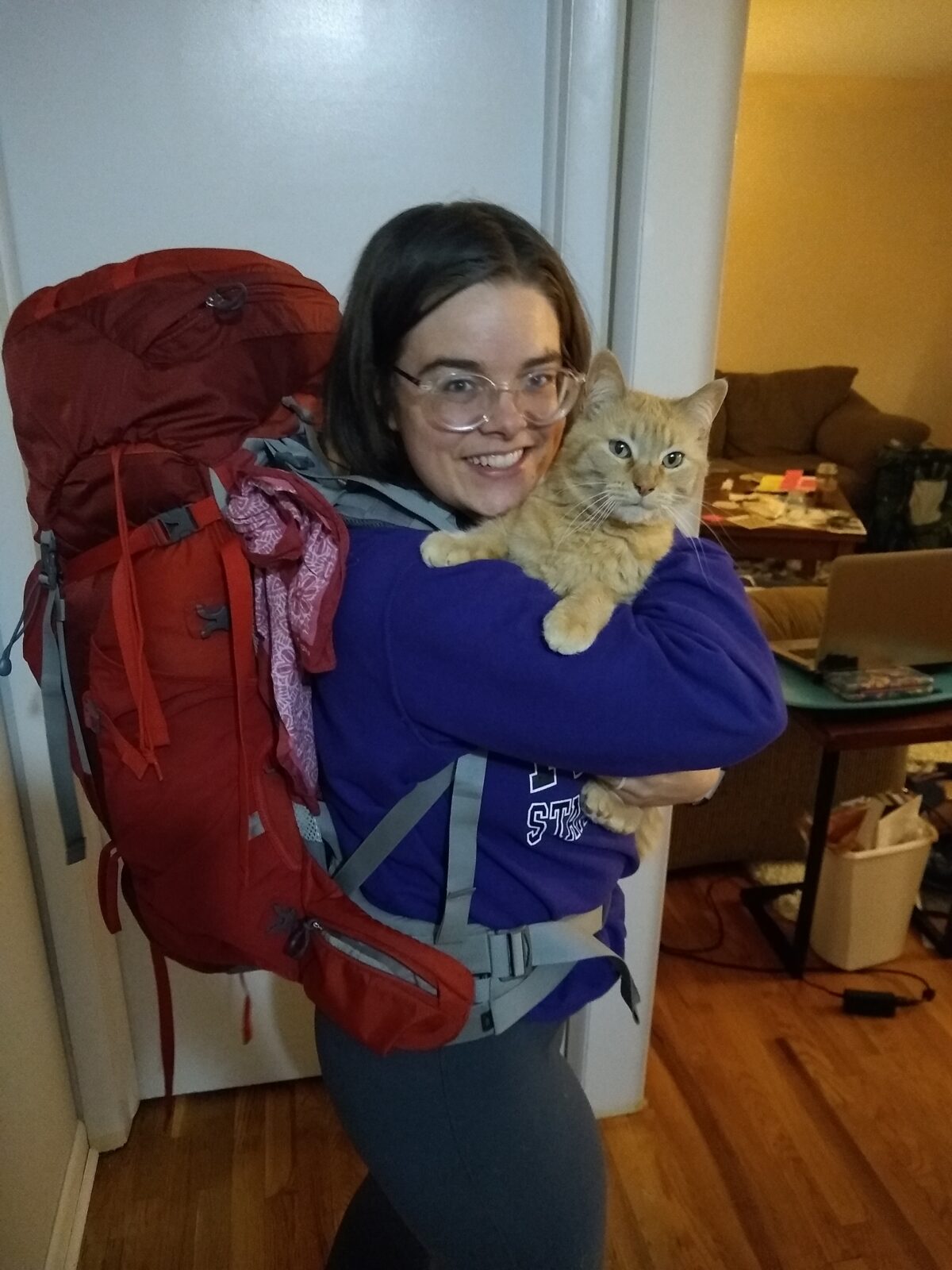As our March 3 start date nears, Rachel and I are packing, unpacking, and repacking with a motto in mind: Every ounce counts.
Somewhere, floating around the internet, is an analysis of why aspiring 2,000-milers don’t make it. More than age, budget, or even physical ability, pack weight showed the strongest positive correlation with non-completion of a thru-hike.
Taking on a six-month hike requires a good amount of gear. But more is optional than you might think, and what’s required can almost always be made lighter. So, after lampooning the people who wear Tyvek, we joined them.

How We’re Cutting Weight
To be clear, we are not ultralight backpackers. We’re bringing bear canisters, which weigh literal pounds. We’ve packed mini-pillows.
Our base weight is, as of this writing, around 22 pounds. We’re very average in that, with the range being 7-32 pounds. By most definitions, ultralighters carry 10 pounds or less.
Some weight is worth it. Keeping a bear from destroying food stash (or, worse, finding it in your tent with you) is important. But keeping hairline fractures or a twisted ankle from ending your hike early is, obviously, worth sacrificing some “nice to haves.”
To cover as many bases with as few pounds as we can, we’re following a fourfold strategy:
1. Focus on the heaviest stuff first.
Who cares if you saved an ounce by cutting your toothbrush in half if your boots weigh five pounds? It’s possible to shave whole pounds from your shelter, pack, clothing, and sleep systems.
Rachel and I took advantage of holiday sales at REI to upgrade our older, heavier gear. My boots did, quite literally, weigh 5 pounds, so I picked up a 1.75-pound pair particularly suited to narrow feet. I purchased an Osprey Exos 58 to replace my Aether 70 from 2008, saving another 2.75 pounds.
2. Share.
By virtue of hiking the trail together, Rachel and I have a few advantages in terms of weight. One two-person tent is lighter than two one-person tents. We’ll share cooking gear, a first aid kit, a gear repair kit, a sanitation kit, and probably some other stuff I’m forgetting.
We’ve also built in key redundancies. An extra Bic lighter is a small price to pay, in terms of weight, for the ability to each start a fire if we’re separated in an emergency. We should, in my view, always have two ways to purify water. We each have our phones, which contain our maps, in case we’re separated, and to have access to different cell networks.
3. Ask “Do I really need this?”
You’d be surprised at just how little some hikers carry with them. In the summer, there’s not much beyond a set of clothes and a few days’ provisions that’s truly necessary.

Shedding weight is about thinking outside the box: Why pack nail clippers when you can buy a pair for $2 (or find and flame-sterilize a pair in a hiker box)? Who needs chapstick when a sunscreen stick is basically the same wax with added protection? If you won’t need an ice axe, then why would you need your pack’s loops for carrying one?
4. Remember the best solution isn’t always bought.
More often than you might think, the lightest, most reliable gear is made or repurposed. And much of that gear can be repaired or replaced with just a visit to Walmart.
Rachel made a ground cloth for our tent, which is lighter, costs less, and may be more durable than the sold one. Our water bottles are 1 liter Smartwater bottles, which are lighter than most purpose-designed bottles, fit a filter on their threads, and slide nicely into pack pockets. Our windscreen is folded aluminum foil.
It is, on the other hand, important to realize when a purchase is worth it. Rachel and I traded 7 oz. bandage scissors and a 5 oz. knife for 1.5 ounce mini-scissors, at a cost of around $5.
Rachel and I also haven’t gone as far as many hikers. One book that informed a lot of my thinking on cutting pack weight is “150 Ultralight Backpacking Tips,” which suggests using snow or rocks to wipe after using the bathroom. We’ll bring a bit of toilet paper, thank you.
Rachel and I could, and almost certainly will, pare our packs back further. But we’re not willing to take the risk of getting injured without a first-aid kit, or of our pack tearing in the wilderness without a way to repair it.
Are we striking the right balance? I have a feeling we’ll be asking ourselves that every mile of the trail.
